Retro Replay Review
Gameplay
The Tower of Druaga delivers a compelling blend of exploration and action that challenges players at every turn. As Prince Gilgamesh, you navigate through maze-like floors, seeking the hidden keys that unlock each stage’s exit. The simplicity of the sword-and-shield combat belies a deeper strategic layer: learning enemy patterns and conserving resources are crucial to survival.
(HEY YOU!! We hope you enjoy! We try not to run ads. So basically, this is a very expensive hobby running this site. Please consider joining us for updates, forums, and more. Network w/ us to make some cash or friends while retro gaming, and you can win some free retro games for posting. Okay, carry on 👍)
What sets Druaga apart are its secret item mechanics. Many power-ups and essential tools aren’t found by mere chance—you must experiment with attacks on walls, defeat specific monsters in a certain order, or linger in a room long enough to trigger hidden switches. These trial-and-error discoveries reward curious players but can frustrate newcomers without a hint system or guide.
Movement feels tight and responsive, honoring the game’s arcade roots. Each floor acts as a self-contained puzzle: the layout, enemy placement, and key location vary widely, keeping the experience fresh even after multiple retries. While some may find the trial-based progression steep, mastering the nuances of each level provides a genuine sense of accomplishment.
Graphics
Originally released in the early 1980s, The Tower of Druaga’s pixel art style is charmingly retro. The character sprites are distinct and readable, with Gilgamesh’s blue armor contrasting nicely against the muted stone backgrounds. Enemies range from simple goblins to larger demons, each animated with just enough frames to convey movement and personality.
The color palette, though limited, is used effectively to highlight important elements. Keys glow in bright gold, special items flash with unique colors, and doors are outlined clearly to stand out against the maze walls. Lighting effects—subtle flickers when you pick up torches or open secret passages—add atmosphere without overtaxing the hardware.
On modern platforms, Druaga often appears with minimal graphical enhancements, preserving its authentic look. Some re-releases include optional scanlines or CRT filters that evoke a classic arcade cabinet. These nostalgic touches won’t impress fans expecting high-definition visuals, but they celebrate the game’s legacy and original charm.
Story
At its core, The Tower of Druaga presents a straightforward tale: Prince Gilgamesh must ascend the eponymous tower to rescue the maiden Ki from the clutches of the demon Druaga. While the narrative is minimalistic, it effectively frames your goal and provides motivation for each grueling climb. Text interludes between floors give brief status updates, maintaining momentum rather than bogging you down in exposition.
The simplicity of the story allows the gameplay to shine. There’s no sprawling cast of characters or moral dilemmas—just a perilous ascent and the promise of rescue. For players who crave epic lore, this bare-bones plot may feel lacking. However, those drawn to arcade-style challenges will appreciate the clear, unambiguous objective.
Hidden items and secret rooms sometimes come with cryptic scrolls or hints, adding a touch of mystery to the tower’s origin. While the backstory remains sparse, these tidbits suggest a deeper mythology waiting to be uncovered. Fans of retro gaming culture often seek out community translations and fan-made guides that expand on Druaga’s world and characters.
Overall Experience
The Tower of Druaga remains a landmark title in arcade history, and playing it today offers a glimpse into the early evolution of action-adventure gaming. Its blend of combat, maze navigation, and hidden secrets is still engaging, though modern gamers may find its difficulty curve unforgiving. Perseverance and willingness to explore every corner of each room are key to progression.
For potential buyers, the game’s short sessions and clear objectives make it ideal for pick-up-and-play scenarios. Quick reflexes and pattern recognition will reward you with steady progress, but be prepared for repeated attempts on tougher floors. Hardcore players and retro enthusiasts will relish the challenge; casual players might need patience or a companion guide.
Ultimately, The Tower of Druaga is less about fancy graphics or deep storytelling and more about pure, arcade-style gameplay. Its design has influenced countless dungeon crawlers over the decades, and experiencing the original source remains a rite of passage for genre fans. If you appreciate gaming history and love uncovering secrets through experimentation, this classic tower climb is well worth your time.
 Retro Replay Retro Replay gaming reviews, news, emulation, geek stuff and more!
Retro Replay Retro Replay gaming reviews, news, emulation, geek stuff and more!

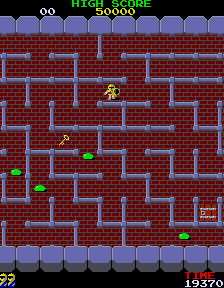
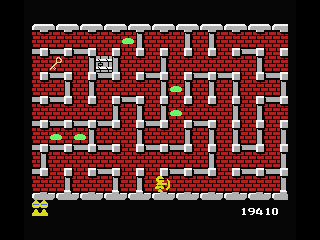
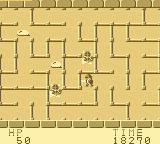
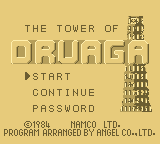
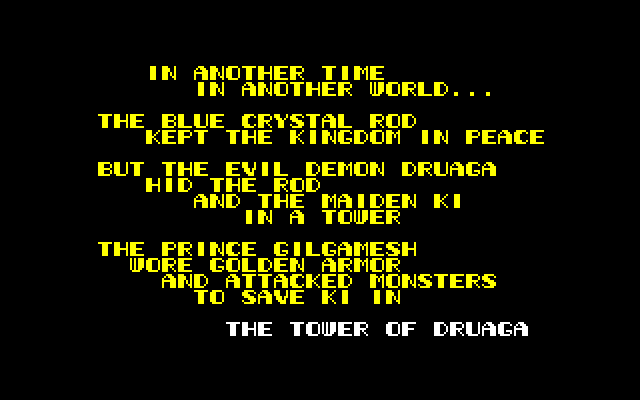

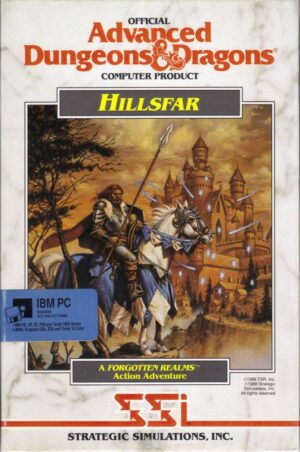
Reviews
There are no reviews yet.